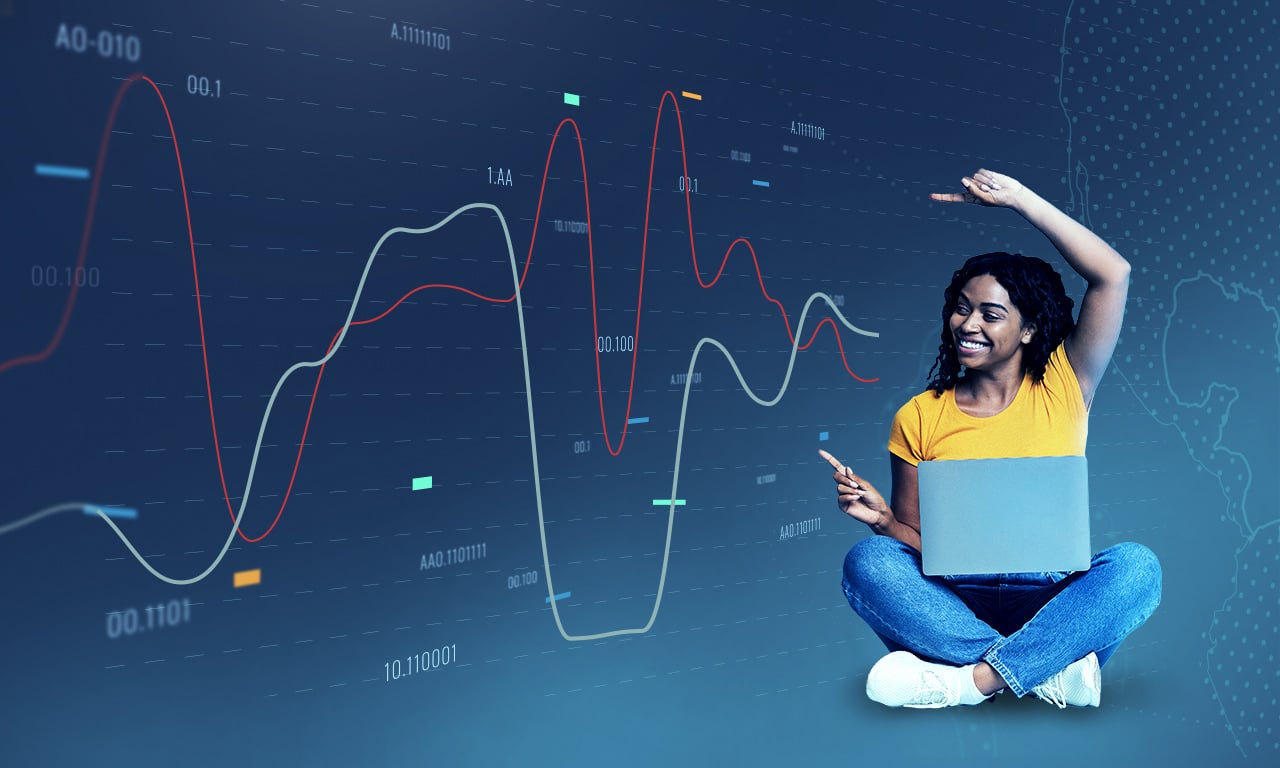This post was originally published by Deriv on 6 October, 2022.
Though emotions greatly influence our decision-making, it’s best to take a rational approach when trading. Here are a few reasons why managing your emotions while trading is key.
Prevents overtrading
Overtrading refers to excessively buying or selling financial instruments. It occurs when a trader has too many open positions or spends too much on one trade.
In most cases, traders overtrade as they want to make up for losses. It could also be the other way around — they want bigger potential gains when trades are going well.
Market behaviour is also a contributing factor to overtrading. When prices move rapidly, traders get tempted to place positions without thinking as they try to maximise profit.
Due to overtrading, a trader may lose focus of their trading plan and strategy, which could lead to significant losses later on.
Have self-discipline to prevent overtrading
The best way to prevent overtrading is to practise self-discipline in your trades. Maintaining a trading plan and adhering to a risk management strategy is essential.
A way to minimise risk is to diversify your portfolio by allocating your capital across different assets. As they say, don’t put all your eggs in one basket. Also, keep your capital under control — only risk what you can afford to lose.
Manages high risk exposure
Trading involves risks regardless of the market being traded. While strategies can mitigate risks, trading under the influence of emotions can lead to biased decisions and unnecessary high risk exposure.
When a market is bullish, some traders fear missing out on big trading opportunities if they don’t act. If they do, they risk overlooking the fundamentals of trading, including assessing how a particular asset behaves. Fear of missing out leads to greed, and makes traders overlook signs of selling or closing their trades. While they hope for a more significant win, they can instead incur bigger losses instead if they act impulsively.
Determine your trading style to manage risk exposure and fear of missing out
A great tool to combat the fear of missing out is to have a trading style. By establishing a trading strategy, you can remain focused on your objectives and stay on track. However, your trading plan should cover all possible scenarios since it will guide you to avoid risking too much capital or entering trades at the wrong time, especially when the market is moving in your favour.
It’s crucial to keep your emotions under control as market conditions constantly change. Avoid letting the current trend sway you.
Avoids revenge trading
In trading psychology, revenge trading happens when a trader acts on their emotional response to a significant loss. It’s a reaction triggered by disappointment. Right after the loss, the trader enters another trade without thinking through their next steps or reviewing their strategy in the hope of recovering the loss immediately.
The intense desire to overcome a loss quickly can drive a trader to act impulsively, causing them to overtrade, resulting in more harm than good. Some traders incorporate revenge trading into their strategy, but many have lost fortunes due to its erratic nature.
Use risk-management features to avoid revenge trading
Using risk management features like stop loss is an effective method of preventing revenge trading. However, this feature works differently when trading CFDs and multipliers.
In CFD trading, stop loss enables you to minimise potential losses by setting a price at which the position will be closed automatically if the market moves against you. While with multipliers, stop loss allows you to set the exact amount you’re willing to risk. Your trade will automatically close when your loss equals or exceeds your stop loss amount.
It is also helpful to keep a trading journal. A trading journal records all your trading activities, so you can reflect holistically on your wins and losses and become a more disciplined trader.
A key to successful trading is keeping your emotions in check. Otherwise, it’ll only lead to self-harm and huge financial losses. Practising your trading skills with a demo account will help you avoid committing any of the pitfalls listed above. Don’t have an account yet? Sign up now!
Disclaimer:
The information contained in this blog article is for educational purposes only and is not intended as financial or investment advice.
